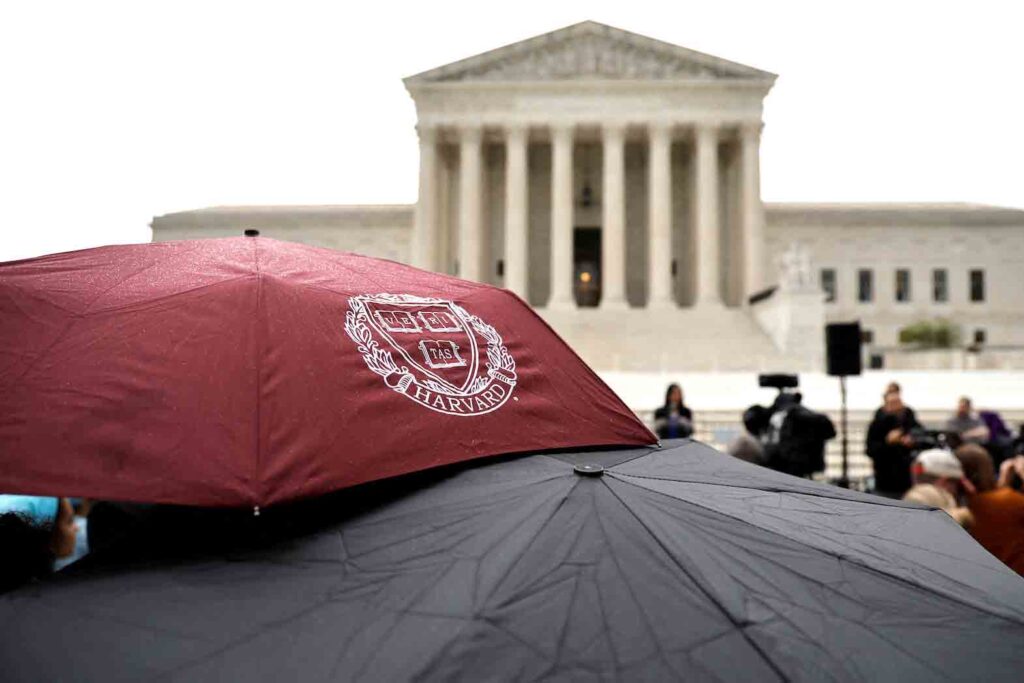US colleges face loss of racial diversity if race-conscious admissions banned – study

A person holds an umbrella with a Harvard logo print as demonstrators gather in support of affirmative action, as the U.S. Supreme Court is set to consider whether colleges may continue to use race as a factor in student admissions in two cases, at the U.S. Supreme Court building in Washington, U.S. October 31, 2022. REUTERS/Jonathan Ernst
If the U.S. Supreme Court bans the consideration of race in college admissions, enrollment of minority groups at selective colleges will likely stall or decline – even if the schools give more weight to factors such as class, a new study found.
The conservative-leaning court will issue rulings this spring in cases questioning the legality of race-conscious admissions at Harvard and the University of North Carolina.
Students for Fair Admissions, the group suing Harvard and UNC, argues that class-conscious admissions would allow schools to create a diverse student body and boost disadvantaged students without focusing on race.
But a study released on Tuesday by Georgetown University’s Center on Education and the Workforce found that admissions practices that consider class but not race would still leave selective colleges without the representation of Black, Hispanic, Indigenous and Pacific Islander students seen in U.S. high schools.
To increase enrollment of all underrepresented groups on campus without race-conscious admissions, the study said, schools would need to overhaul the entire process.
That would involve eliminating the consideration of students’ athletic talent and their ties to school alumni or donors – factors that largely benefit white, affluent applicants, the study said.
About 60% of top U.S. colleges consider race as a factor in admissions, according to 2015 estimates.
The study’s authors said it was unlikely that schools would universally adopt class-conscious admissions.
Many colleges without large scholarship budgets would be limited in their ability to select applicants who can’t pay full tuition, which could further erode diversity, said Anthony Carnevale, head of the Georgetown center and lead author of the study.
Those that do try class-conscious admissions might still face discrimination lawsuits if they start giving explicit preference to low-income students, Carnevale added.
Schools would have to invest heavily in expanding their recruitment of high school students from disadvantaged backgrounds for a class-based alternative to produce anywhere near the level of racial diversity accomplished through race-conscious admissions, the study found

